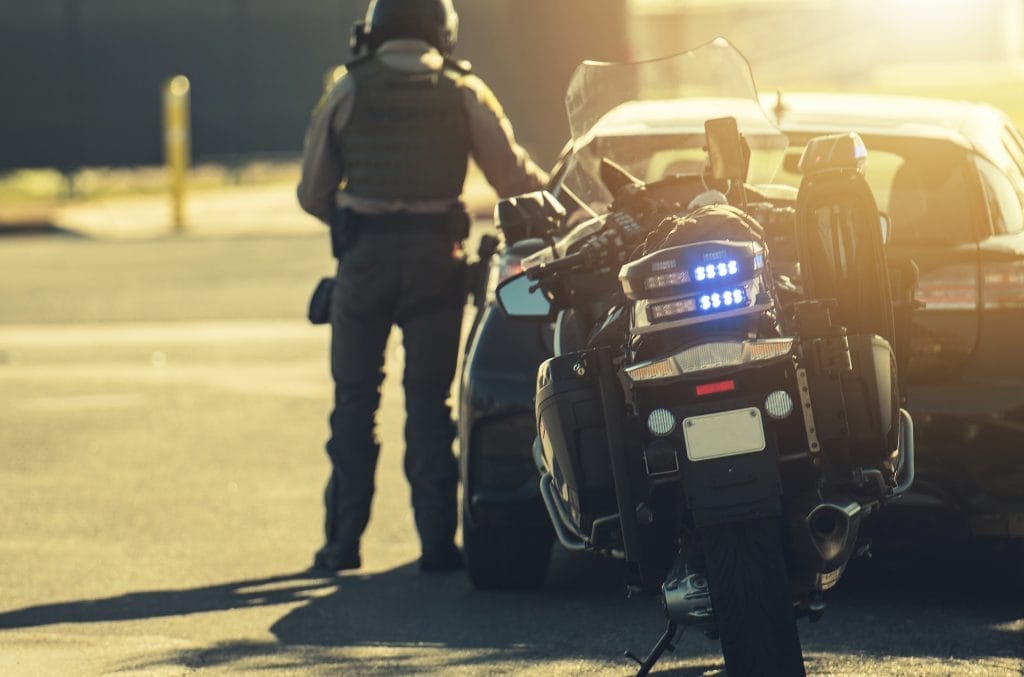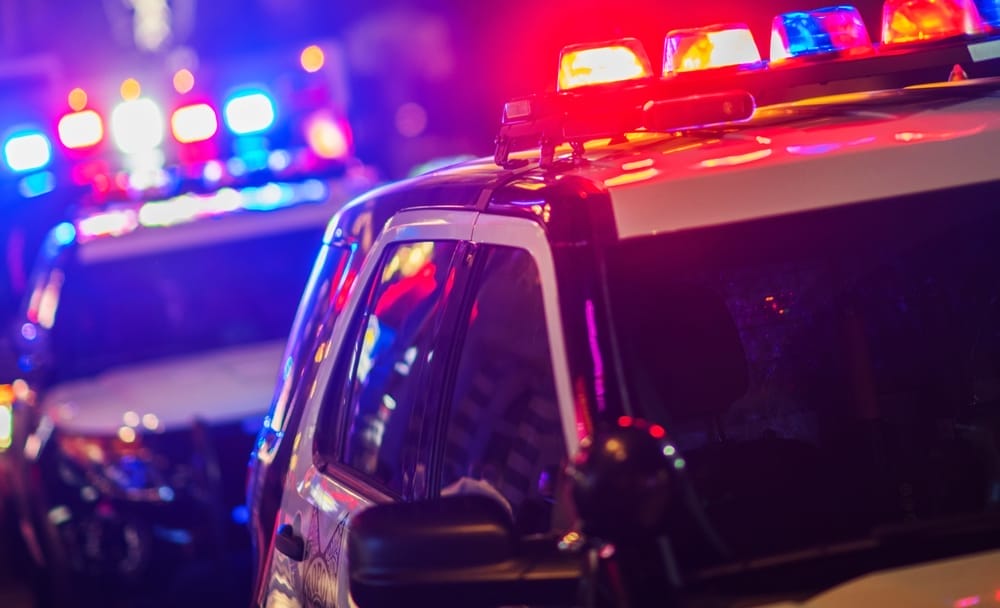To exploit DUI police report errors, you must carefully review the report for inconsistencies and deviations from standard procedures. First, analyze the legality of the traffic stop and the administration of a standardized field sobriety tests. Confirm if police officers adhered to established protocols, especially during breathalyzer tests, ensuring the device was properly calibrated and the operator certified. Scrutinize officer testimonies for biases or inaccuracies. These steps allow you to uncover procedural flaws which could render vital evidence inadmissible. Leveraging these errors effectively can greatly weaken the prosecution’s case. Gaining deeper insights, along with an experienced lawyer, could further fortify your defense strategy.
Table of Contents
Torrone’s Takeaways: Exploiting DUI Police Report Errors
- Review the police report for inconsistencies in the officer’s narrative and the documented evidence.
- Verify the calibration and maintenance records of breathalyzer devices used during the arrest.
- Assess the legality of the traffic stop to ensure it was based on valid reasons and proper procedures.
- Scrutinize the administration and documentation of field sobriety tests for adherence to standardized protocols.
- Compare officer testimonies with video evidence and witness statements to identify discrepancies.

Identifying Report Inaccuracies
To effectively challenge a DUI charge, scrutinize the police report for inconsistencies in officer statements and event timelines, as such inaccuracies can significantly undermine the prosecution’s case. Examine every detail about the DUI stop timeline and the field sobriety tests administered. Disparities in times, sequences, or procedures documented can highlight crucial police report errors, casting doubt on the reliability of the evidence against you.
Further, delve into the specifics of testing procedures. Any deviation from established protocols or inaccuracies in the report not only weakens the charge but also questions the entire credibility of the arresting officer’s account. This level of scrutiny is essential as even slight factual discrepancies can greatly affect the overall credibility of the case presented by the prosecution.
It’s your duty to pinpoint these lapses in accuracy. Armed with such knowledge, you can craft a compelling defense that underscores these faults, thereby potentially altering the outcome in your favor. Remember, every detail is critical when contesting a DUI charge, and your ability to identify these errors can be a vital factor in the success of your defense.
Analyzing Arrest Procedures
Evaluating the arrest procedures exposes several potential weaknesses in the police report that could significantly influence your case. A thorough examination of the arrest process is essential, starting with the initial traffic stop to ensure its legality. Any procedural missteps at this stage, such as a lack of probable cause, might render all following evidence, including the DUI charge, inadmissible.
Key areas to focus on include:
- Initial Traffic Stop: It’s critical to ensure it was based on observable violations or reliable tips. Any anomalies here can challenge the stop’s legality.
- Officer’s Observations: Contrast these with video evidence or witness statements. Discrepancies can weaken the credibility of the police report.
- Miranda Rights: Confirm that these rights were communicated at the correct time. Neglecting this procedure can result in the exclusion of self-incriminating statements.

Examining Field Sobriety Tests
Field sobriety tests are crucial in DUI investigations but are often plagued by errors that can dramatically affect their reliability and the outcome of your case. These assessments, including the Walk-and-Turn, One-Leg Stand, and Horizontal Gaze Nystagmus, aim to assess impairment levels but are prone to various inaccuracies.
Consider the standardized protocols first. Police errors during administration, such as giving incorrect instructions or neglecting environmental factors, can distort results. It’s essential to verify that these tests were performed according to the exact guidelines, as any deviations might pose significant legal challenges.
Officer bias could also impact the results of these tests. Subjective interpretation of performance can differ widely, meaning the accuracy of your results might lean more on the officer’s perspective than on your actual impairment. It’s crucial to question and scrutinize the officer’s objectivity and training during your defense.
Lastly, ensure the accuracy of these test administrations. Factors like your medical conditions or the testing environment should have been considered. If overlooked, these errors can be potent arguments against the validity of the evidence. By leveraging these insights, you can effectively challenge the prosecution’s claims and strive for a positive outcome in your DUI case.
Reviewing Breathalyzer Protocols
Understanding breathalyzer test protocols is crucial for pinpointing any discrepancies or procedural errors that might affect the credibility of your DUI charges. It’s essential to ensure that all steps were executed flawlessly. Breathalyzer devices, when not properly calibrated or operated, can produce erroneous readings that might unfairly affect your case.
Here are three critical elements to examine:
- Calibration and Maintenance: Breathalyzer devices require consistent calibration according to the manufacturer’s guidelines to ensure precision. Examine the maintenance logs to verify that the device used was in optimal condition.
- Officer Training: The officer conducting the test must have the necessary training and certification. Inspect their training documentation to confirm they were competent to perform breathalyzer tests, as inadequate handling can result in faulty outcomes.
- Testing Procedure: Verify that the test was conducted according to the established protocol. Incorrect testing methods, such as conducting the test too shortly after alcohol consumption, can distort the results.
Scrutinizing Officer Testimonies
To effectively counter your DUI charge, you must rigorously examine officer testimonies for any discrepancies or inaccuracies that could weaken the prosecution’s case and expose police mistakes. It’s crucial to analyze the statements made by the police officer during the initial stop and the subsequent arrest. Look for differences between what’s documented in the police report and what the officer states in court.
As you delve deeper, pay close attention to potential biases or inaccuracies in the officer’s narrative. These may arise from misremembered details or subjective interpretations of your actions or performance in field sobriety tests. Highlighting these points can diminish the prosecution’s dependence on these testimonies.
When cross-examining the officer, concentrate on drawing out information that highlights these discrepancies or errors. Pose detailed questions that challenge the officer’s observations and the conclusions derived from them. This strategy not only exposes flaws in the prosecution’s evidence but also strengthens your defense.
Being thoroughly prepared allows you to transform officer testimonies from a prosecutorial advantage to a significant vulnerability. By meticulously analyzing these testimonies, you boost your chances of achieving a more favorable verdict in your DUI case.

Assessing Probable Cause
When delving into officer testimonies, it’s crucial to consider if there was legitimate probable cause for your DUI arrest. Probable cause should be based on concrete facts, not just suspicions. This principle safeguards your rights, ensuring that any detention or arrest is justified by solid evidence rather than arbitrary choices.
As you review the police report, focus on these pivotal points:
- Clear Observations: Were the grounds for suspecting DUI explicitly stated? Ambiguous or broad descriptions like ‘suspicious driving’ lack the necessary detail to establish probable cause.
- Behavioral Indicators: Did the officer document any particular behaviors, such as slurred speech or failing sobriety tests? These elements are crucial for establishing probable cause.
- Consistency and Precision: Compare the officer’s account with video evidence or witness testimonies. Any inconsistencies could undermine the report’s credibility and, thus, the probable cause.
An absence of robust probable cause could result in the exclusion of evidence, significantly weakening the prosecution’s case. It’s vital to pinpoint any errors in the police report concerning the establishment of probable cause. Thorough analysis of these factors could significantly benefit your DUI defense.
Evaluating Stop Legality
To effectively address your DUI case, first confirm whether the police had a valid reason for the traffic stop. Closely examine the officer’s report and testimony, looking for any mention of unusual driving behavior, malfunctioning taillights, or outdated vehicle registration that could justify the stop according to legal standards. However, critically analyze these justifications; ensure that the observations indeed satisfy the level of reasonable suspicion needed for a lawful stop.
If the report doesn’t clearly show evidence of traffic violations or unpredictable driving, this might suggest the stop was baseless, which becomes a pivotal element in your defense strategy. Errors by police in noting the reason for the traffic stop can significantly bolster your case. Your attorney must contend that without a legitimate reason for the stop, the ensuing DUI arrest should be considered invalid.
Checking Administrative Details
After confirming the legality of the stop, it’s crucial to thoroughly examine the administrative details in the police report for any possible errors. This detailed review might uncover inconsistencies that significantly weaken the prosecution’s case.
Begin by examining the officer’s training and certification records. If the officer lacks the necessary training for DUI enforcement, including the proper execution of field sobriety tests, this could lead to major procedural mistakes that might invalidate the arrest. Also, ensure that the administrative procedures documented adhere to legal standards, especially focusing on:
- Accuracy of Event Details: Check that the time, location, and sequence of events are recorded accurately and without any inconsistencies.
- Field Sobriety Test Documentation: Ensure the results of the field sobriety tests are precisely documented and that the methodology used is in line with standard training protocols.
- Chain of Custody for Samples: Review the documented chain of custody for blood and breath test samples, looking for any potential mishandling or procedural deviations.
Delving into these areas requires a keen analysis and comprehension. Discovering errors here could provide a strong foundation for contesting the evidence presented against you. Mastering these details bolsters your strategy for achieving a favorable legal outcome.
Understanding Evidence Collection
To effectively contest a DUI charge, it’s crucial to grasp the nuances of how evidence is collected and documented, pinpointing any inaccuracies that could weaken the prosecution’s case. The collection of evidence during a DUI arrest incorporates several vital components—field sobriety tests, Breathalyzer results, and officer observations, all diligently recorded in police reports. Each item of evidence requires thorough scrutiny for precision and compliance with procedural norms.
The accuracy of documentation in police reports is critical. Any discrepancies in the officer’s observations or anomalies in Breathalyzer calibration logs can significantly affect the credibility of the evidence. For example, if the police report omits details about the conditions under which a field sobriety test was performed, the reliability of the results could be questioned due to external factors such as uneven terrain or inadequate lighting.
Furthermore, documentation errors like incorrect timestamps or ambiguous narrative descriptions can be leveraged to contest the validity of the DUI arrest process itself. By mastering the details of proper evidence collection and documentation, you position yourself to spot potential errors that could tip the balance in your favor. A meticulous analysis of these elements ensures that no detail that might undermine the prosecution’s case is missed.
Leveraging An Attorney
Hiring a proficient DUI defense attorney significantly boosts your ability to spot and utilize errors in the police report, potentially undermining the prosecution’s case against you. A seasoned DUI defense attorney applies a meticulous eye and deep legal acumen to thoroughly scrutinize every detail in the police report. They’re adept at identifying procedural errors and using inconsistencies that might otherwise be overlooked.
Here are three essential ways in which your attorney can take advantage of police report errors and common police mistakes:
- Identification of Inaccuracies: Your attorney can pinpoint inaccuracies in the observations noted by the officer, such as discrepancies in timelines or errors in reported field sobriety tests, which can be crucial in contesting the evidence against you.
- Exploitation of Procedural Mistakes: With their legal expertise, your attorney can identify and challenge procedural errors, from the legality of the traffic stop to the proper handling and documentation of the Breathalyzer test.
- Strategic Use of Errors: By using inconsistencies and errors in the police report, your attorney can craft a compelling argument to challenge the prosecution’s narrative, potentially swaying the outcome in your favor.
With their expertise, a seasoned DUI criminal defense attorney is your prime ally to navigate the complexities of DUI charges and optimize your chances for a positive resolution.
Frequently Asked Questions About DUI Police Report Errors
How Can a DUI Police Report Impact Future Employment?
A DUI police report can severely impact your future employment. Employers often review criminal records during background checks, and a DUI can be a significant red flag, jeopardizing job opportunities, especially in roles requiring driving or high responsibility.
Some professions may also deny or revoke licenses or certifications based on such convictions, limiting your career progression. Additionally, the public nature of these records can damage your professional reputation and credibility.
Do DUI Report Errors Affect Insurance Rates?
Certainly, correcting DUI report errors can indeed impact your insurance rates.
If the report inaccurately portrays the seriousness of the incident, your perceived risk level may be unfairly raised, resulting in higher premiums.
It’s crucial to address these inaccuracies promptly. Rectifying such errors can help prevent unwarranted increases in your insurance costs, ensuring that your rates accurately reflect the true nature of the incident.
Can a DUI Police Report Be Amended After Filing?
Yes, a DUI police report can be amended after it’s filed. If you discover factual inaccuracies or mistakes, it’s crucial to act swiftly.
Amendments might include updates or clarifications to guarantee accuracy. These changes can greatly impact the outcome of your case.
Always thoroughly review the report and collaborate with your attorney to address any discrepancies promptly, thereby strengthening your defense and potentially altering the course of your legal proceedings.
What Personal Data Is Disclosed in a DUI Police Report?
In a DUI police report, you’ll find your personal details like name, address, and driver’s license information. It also includes specifics of the incident—where and when it happened, the reason for the stop, and observations made by the officer. Information about any field sobriety tests, breathalyzer results, and statements you made during the arrest are also recorded.
Details about your vehicle and any prior offenses may be noted if relevant.
How Long Do DUI Reports Remain on Public Record?
DUI reports typically stay on public record for up to 10 years, but this duration varies by state. As you’re managing your case, it’s crucial to understand these timelines since they affect how long your DUI will impact background checks by potential employers or landlords.
Exploring options for expungement may also be worthwhile, depending on your state’s laws, to mitigate long-term consequences and clear your record sooner.
Conclusion
To sum up, dissecting the police report for errors isn’t just a step; it’s your secret weapon to potentially avoid jail time. These inaccuracies, no matter how minor they seem, can torpedo the prosecution’s case against you.
With precision analysis and an experienced attorney by your side, you’re not just defending yourself; you’re launching a counterattack. Arm yourself with this knowledge, challenge every flaw, and watch as the seemingly invincible case against you crumbles like a house of cards.






